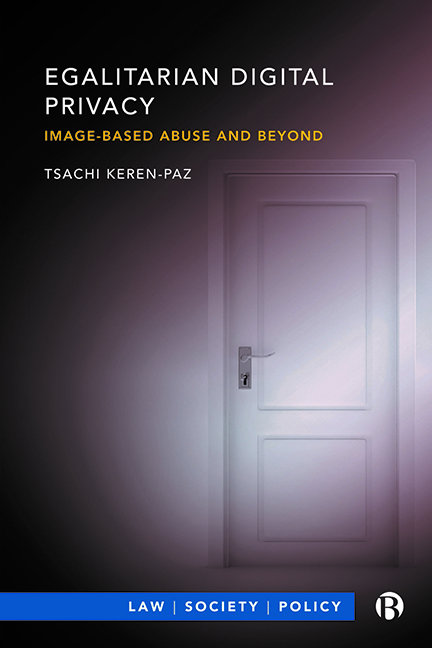Book contents
- Frontmatter
- Dedication
- Contents
- Acknowledgements
- Series Editor’s Preface
- 1 Introduction
- 2 Setting the Ground: The Intermediary Liability Debate and Framing Issues
- 3 First Principles and Occupiers’ Liability: The Case against Immunity
- 4 Property and Privacy: The Case for Strict Liability
- 5 Property and Privacy: Objections and Possible Extensions
- 6 The Policy Debate: Uniqueness of Harm from NCII
- 7 The Policy Debate: Freedom of Expression and Financial Costs of Filtering
- 8 The Easy Case for Viewers’ Liability: Child Pornography and Apportionment of Liability
- 9 Viewers’ Liability: Intention and Objective Fault
- 10 The Power of Property: Strict Liability for Viewing NCII
- 11 Scope of Liability for Breaches of Privacy
- 12 Is Suing Viewers Practicable?
- 13 Conclusion
- References
- Index
6 - The Policy Debate: Uniqueness of Harm from NCII
Published online by Cambridge University Press: 17 January 2024
- Frontmatter
- Dedication
- Contents
- Acknowledgements
- Series Editor’s Preface
- 1 Introduction
- 2 Setting the Ground: The Intermediary Liability Debate and Framing Issues
- 3 First Principles and Occupiers’ Liability: The Case against Immunity
- 4 Property and Privacy: The Case for Strict Liability
- 5 Property and Privacy: Objections and Possible Extensions
- 6 The Policy Debate: Uniqueness of Harm from NCII
- 7 The Policy Debate: Freedom of Expression and Financial Costs of Filtering
- 8 The Easy Case for Viewers’ Liability: Child Pornography and Apportionment of Liability
- 9 Viewers’ Liability: Intention and Objective Fault
- 10 The Power of Property: Strict Liability for Viewing NCII
- 11 Scope of Liability for Breaches of Privacy
- 12 Is Suing Viewers Practicable?
- 13 Conclusion
- References
- Index
Summary
Introduction
The previous two chapters established the case for strict intermediary liability based on conceptualizing intimate images (or possibly private information) as property. They also established that the policy considerations supporting strict liability of merchant selling stolen property apply to an even greater extent to NCII. This chapter will complement the discussion by pointing to the special policy considerations supporting strict liability for NCII. I defend here a claim for ‘NCII exceptionalism’ so even if one believes that NTD (or possibly stay down) is an appropriate regime for other content, such as defamation and copyright, strict liability and filtering duties are required and justified for NCII. The case is simple: on the one hand, the harm from NCII is serious and irreparable in a way that the harm from defamation and let alone from copyright is not. Indeed, a glimpse into why this is so was already apparent from the discussion in Chapters 3 to 5, including the right to an effective remedy (Chapter 3, Part 4). On the other hand, the costs of a duty to filter backed by strict liability are much less significant in comparison to cases of copyright and defamation, in terms of both chilling valuable speech and the financial costs of sorting lawful images from unlawful ones. This latter claim will be defended in the next chapter.
Therefore, the argument defended in this (and the next) chapter supports a vertical approach to intermediary liability to user content, which is the direction of travel in EU law and already exists in US law and criticizes the ‘inverted hierarchy’ entrenched in US law and emerging in EU law, according to which internet intermediaries are more accountable for copyright infringing content than for breach of sexual privacy.
Harm from NCII
Severe, multifaceted, and irreparable
The harm from NCII is severe and irreparable. NCII seriously impairs normal social functioning both online and offline. As such, it is a life-changing experience affecting long-term broad swathes of interests both online and offline. Online, the effect of (and at times the purpose behind) NCII and the common follow-up abuse and ‘slut shaming’ is to bar the victim from online existence (Citron, 2016), thus threatening her digital citizenship which in a similar context was described as ‘social death’ (Kowalski et al, 2008).
- Type
- Chapter
- Information
- Egalitarian Digital PrivacyImage-based Abuse and Beyond, pp. 86 - 109Publisher: Bristol University PressPrint publication year: 2023



